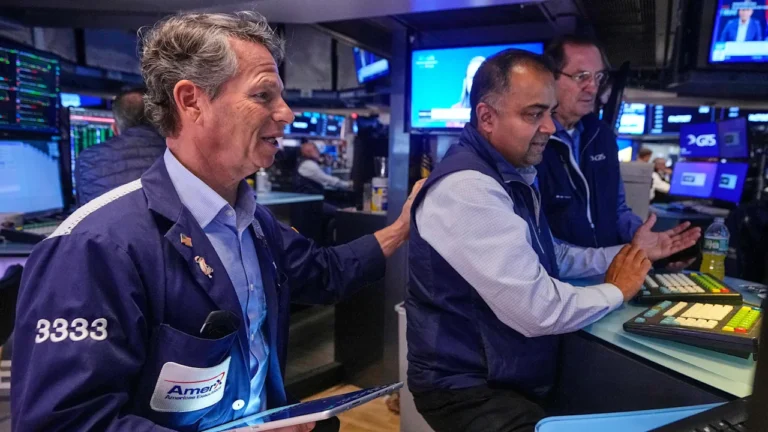
Hello and welcome to Modern CEO! I’m Stephanie Mehta, CEO and chief content officer of Mansueto Ventures. Each week this newsletter explores inclusive approaches to leadership drawn from conversations with executives and entrepreneurs, and from the pages of Inc. and Fast Company. If you received this newsletter from a friend, you can sign up to get it yourself every Monday.
Gregg Renfrew is back. Four years after the entrepreneur sold her clean skincare and cosmetics brand Beautycounter to The Carlyle Group in a deal valued at $1 billion—and more than a year after she and the private equity firm shut down the company amid falling sales—Renfrew today is officially launching Counter, a new company built on Beautycounter assets she acquired from Carlyle’s lenders.
A season of learning
Counter, which has been quietly selling products online since June 25, shares its predecessor’s clean ethos and uses some of its formulations. Renfrew also secured data on all of Beautycounter’s customers. But Counter is an upstart compared with Beautycounter, which reportedly booked $400 million in annual sales at the time of the Carlyle acquisition. Despite her considerable experience as an entrepreneur—she previously cofounded a bridal registry site bought by Martha Stewart Living Omnimedia—Renfrew is, in many ways, going back to basics, focusing on profitability and listening to customers and sellers.
“I come into this today with a level of humility,” she tells Modern CEO. “I don’t claim to have all the answers. I’m in a season of learning.”
Beautycounter’s demise was indeed humbling. (My Fast Company colleague Elizabeth Segran offers a thorough recounting of the company’s rise and fall.) Sales foundered and the company struggled to service its debt. Efforts to revive Beautycounter, such as a deal to sell its products in retailer Ulta Beauty, and changes to leadership, including the return of Renfrew as CEO in 2022, ultimately could not save the business.
Renfrew says buying back the Beautycounter assets instead of starting a new company from scratch wasn’t just a way of kick-starting a business. It was an emotional decision, too. “To let the old company completely go and die when it pioneered, created, and led clean beauty—knowing that it had been a very successful entity at one point in time—I didn’t want to let go of all that,” Renfrew says. She adds: “My daughter Georgie was literally bawling in front of me saying, ‘You can’t just let this thing die. Mom, you worked so hard for so long.’”
Second chances and lessons learned
Renfrew is not the first founder with seller’s remorse. In 2023, Ben and Nate Checketts took back control of Rhone, the apparel brand they started, from investor L Catterton. Sprout Pharmaceuticals founder Cindy Eckert sold her company to Valeant Pharmaceuticals (now known as Bausch Health Companies Inc.) in 2015 for $1 billion, then bought it back two years later because the giant didn’t make “reasonable efforts” to commercialize Sprout’s female sexual health drug.
At Counter, Renfrew is applying lessons learned the hard way from the Beautycounter collapse. She is not the majority shareholder, but she says she has a high degree of decision-making authority. Her backers are mostly individuals, most of whom invested with her before. The one institutional investor came in “knowing that we were going to do things a little bit differently,” such as prioritizing profitability over growth. “Profitability gives you optionality,” she says. “One of the things I’m very acutely aware of is you don’t ever want to be in a situation where you’re not profitable. And if that means the business is slightly smaller and it takes longer to grow, that’s okay, because your customers then know that you’re going to be around in five years.”
She’s doing teleconference meetings with customers and sellers, asking what’s working and what’s not. “I’m seeking to understand and learn,” she says, adding that she “recognizes that we’re here in service of others who will afford us the opportunity to build a great brand and a great community.”
Counter’s success is by no means assured. The clean beauty category Renfrew helped create is now crowded with competitors, and the demise of Beautycounter left employees, sellers—the company sold through its website but also through so-called ambassadors who earned a commission on sales—and customers in the lurch. Counter may have to, well, counter lingering negative feelings. “Those who continue to purchase from us in this new company—we owe a debt of gratitude,” Renfrew says. “We need to treat them with the respect that they deserve.” For Renfrew, one way of showing them that respect is, this time, to build a company that’s built to last.
What’s your approach to business longevity?
If you’re a founder or work at a founder-led company, what are the ways that your business is ensuring its longevity? Share your insights with me at stephaniemehta@mansueto.com, and we’ll include some of the best reader feedback in a future newsletter. As a reminder, I’m soliciting nominations for Modern CEO of the Year via this form. Submissions are due November 21, and we’ll share our pick—or picks—in a newsletter at the end of December.
Read and watch: entrepreneurial second acts
Cindy Eckert on buying back sexual health company Sprout Pharmaceuticals
Chipotle founder Steve Ells wants to shake up restaurants with his new concept, Kernel
Mark Lore on what it takes to be a serial entrepreneur






